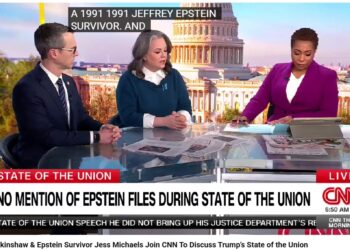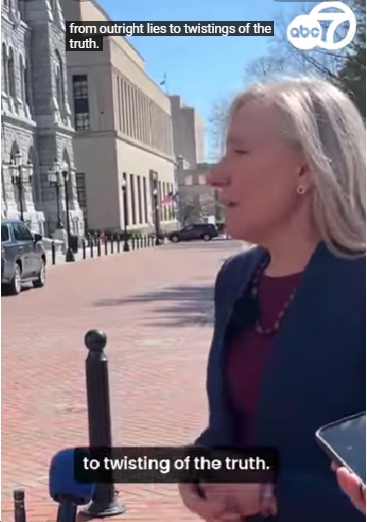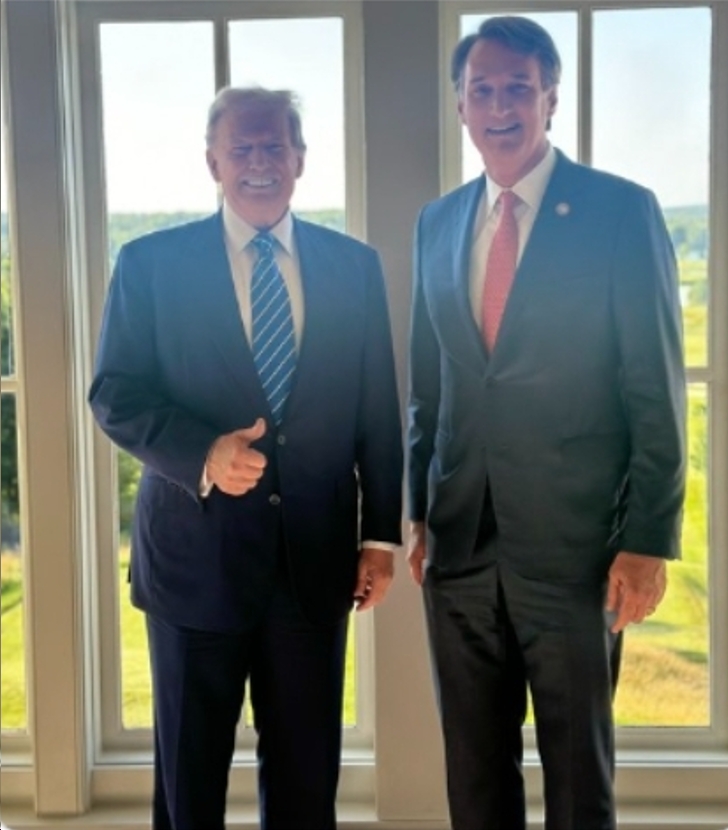by Bill Rice, a student at Georgetown University Law Center, interning this summer at the Virginia Poverty Law Center
“I must confess that over the past few years I have been gravely disappointed with the white moderate. I have almost reached the regrettable conclusion that the Negro’s great stumbling block in his stride toward freedom is not the White Citizen’s Counciler or the Ku Klux Klanner, but the white moderate, who is more devoted to ‘order’ than to justice; who prefers a negative peace which is the absence of tension to a positive peace which is the presence of justice; who constantly says: ‘I agree with you in the goal you seek, but I cannot agree with your methods of direct action.’” – Martin Luther King, Jr. ‘Letter From a Birmingham Jail’ (1963)
Racism, xenophobia, bigotry, hate – these are things that thrive and fester where they are not made to feel uncomfortable.
When these ideologies and systems are too powerful, too manifest in society, the best way to confront them is through direct action, action that is uncomfortable. Yet such action is often disparaged and shunned by the powerful, by elites, and by those comfortable in the general status quo. Such action is often chided as uncivil, rude, or disrespectful.
Nothing could be further from the truth. For, it has only been direct action that has pulled down oppressive power structures in our society. American abolitionists used direct action to challenge the system of slavery in the U.S.; others compromised with the slave power structure and allowed slavery to have legal protections and societal recognition. American Civil Rights leaders used direct action to challenge the system of segregation and Jim Crow legislation in the U.S.; others compromised with the segregationist power structure, and allowed legal and societal recognition of segregation to continue. And today, immigrant rights leaders in the U.S. are using direct action to challenge the inhumane policies of the Trump administration; while others look to compromise with the uncompromisable, to act civil towards the uncivil.
In his “Letter From a Birmingham Jail,” Dr. Martin Luther King, Jr. described these contrasting approaches to injustice as the difference between pursuing a “positive peace” (i.e., “the presence of justice”) through direct action versus accepting a “negative peace” (i.e., “the absence of tension”) with incremental, minor resistance to it.
King explained that direct action brings “to the surface the hidden tension that is already alive.” By bringing it “out in the open,” he explained, “it can be seen and dealt with.”
“Like a boil that can never be cured so long as it is covered up but must be opened with all its ugliness to the natural medicines of air and light,” King wrote. “[I]njustice must be exposed, with all the tension its exposure creates, to the light of human conscience and the air of national opinion before it can be cured.”
This conflict between direct action versus acceptance of a negative peace rang clear in the different approaches taken by Virginia’s elected officials regarding the Jamestown 400th Anniversary celebration and the inclusion of President Donald Trump’s as keynote speaker of the event.
The Virginia Legislative Black Caucus (VLBC) boldly and admirably chose to boycott the event and hold alternative commemorative events, arguing that “[t]he absence of the VLBC will send the message that the members do not condone the President’s participation and all that is represented by his attending this commemoration,” and adding that “[t]hose who have chosen to attend and remain silent are complicit in the atrocities that he incites.” Other Democratic leaders also boycotted the commemoration and/or decided to join the VLBC’s alternative events, including House Democratic Leader Eileen Filler-Corn, Senate Democratic Leader Dick Saslaw, Richmond Mayor Levar Stoney, Rep. Donald McEachin, and Richmond City Councilwoman Cynthia Newbille, among others.
In contrast, a number of other Democratic elected officials decided to attend, with some of them wearing white in protest of Trump’s presence at the event.
Some of these legislators who attended the commemoration justified their attendance by claiming their presence there would prevent Trump from co-opting the event for himself, that it would allow for a true honoring of Virginia’s history of democracy and liberty. Instead this attendance merely perpetuated the historical flaws of Virginia’s and the United States’ representative governments. That is, Virginia’s and the United States’ representative governments have historically been entities that excluded and oppressed Black Americans, Indigenous Americans, Latinx Americans, and other racial and ethnic groups not included in the white power structure. It was a system that empowered the free speech rights of bigots and wealthy elites while clamping down on the free speech rights of these aforementioned communities of color.
And we saw this play out again, as Trump was given a keynote speaker platform to spread his vile ideology while a Palestinian-American legislator, Del. Ibraheem Samirah, was quickly escorted out by security (while audience members chanted “Trump! Trump!”) for bravely protesting the Trump administration’s xenophobic and inhumane policies. Just like throughout our past, ideals of liberty and freedom were given lip service by elites while, at the very same event, the liberty and freedom of a person of color was snuffed out.
Thus, the silent legislators in attendance did little to stop this repeat of the worst of our history and present society. Instead they merely sat as witnesses to it, in essence perpetuating it.
They perpetuated a system wherein voices of white supremacism and xenophobia were brought to the forefront (as a keynote speaker no less), and the voices of the marginalized and oppressed were pushed into the shadows, out of sight and out of mind – for the sake of civility, of course. They silently sat through an event that normalized Trump, legitimized him and, at points, even included speeches that fawned over him.
A smiling fashion statement in white isn’t direct action. It’s toothless symbolism. (And I’m going to go out on a limb here and say Trump probably isn’t too put off by the color white).
This attempt at protest through wearing white was meant to emulate the defiance of many Democratic legislators during Trump’s 2019 State of the Union address, in homage to the Suffragist movement. But the effect in this instance was much less potent, instead harkening back to the white suffragists who excluded their sisters of color. Furthermore the context surrounding each event was also different.
The State of the Union address is an event that inherently involves the President of the United States addressing Congress. The televising of the event also includes regular shots of Congresspeople, and their often disapproving faces and body language, in the audience.
In contrast, there was nothing about the Jamestown 400th commemoration event that needed to involve the President of the United States. Rather he was specifically invited to be the keynote speaker. In addition, the televising of this event included little if any footage of those in the audience, with disapproving expressions or otherwise. And on top of all of this, most legislators of color vocally expressed their plans to boycott the event.
With their “civil” attendance, these legislators acted in the same role as the “white moderates” that King lamented about in his ‘Letter from a Birmingham Jail.’ This is a role that allows white supremacy, xenophobia, and oppression to thrive. It is a role that prizes meek, symbolic, “civil” actions against racism and xenophobia, actions that do little to nothing to truly challenge these systems, while condemning or refusing to truly support more direct, substantive actions – actions that can most effectively challenge the systems and phenomena of hate, oppression, and fascism.
This is not to say that those legislators who chose to attend the event do not ever engage in direct action or substantive action against the Trump administration, racism, or xenophobia; many of them often do. But in this case, they did not. In this case, they chose poorly – in this case they chose a negative peace to a positive peace.
And my point in writing this is not to condemn them as terrible people. Not at all. Rather, all I’m asking of them is to do better, to be bolder, to be less deferential to power and more deferential to an uncomfortable pursuit of justice – to listen to their brothers and sisters of color, to listen to marginalized communities, and to follow their lead in these instances.
What we need now is less smiling civility and more bold, direct action. What we need now is less of those taking weak action in the face of inhumanity, and more of those standing side-by-side with brave leaders from marginalized communities in their fight for justice. What we need now is fewer “white moderates” and more bold disrupters, ready to take direct action against injustice and inhumanity.
Bill Rice is a student at Georgetown University Law Center, interning this summer at the Virginia Poverty Law Center. Bill also currently works as a Grant Writer for Yazda, an organization assisting the Yazidi people and genocide survivors in Iraq and Syria. Prior to attending law school, he worked in government consulting at USDA and USAID, as a communications associate at the Association of the United States Army, and as a journalist at the Northeast News Gleaner. He has a Master’s Degree in International Relations from American University, and two Bachelor’s Degrees from Lebanon Valley College in Political Science and History. Bill’s views expressed here are his own and do not represent any organization he works/has worked for or with.





![Video: Speaking at Democratic AG’s Conference, Jay Jones Says Trump “probably doesn’t like the fact that I’m sitting in this seat, but here I am ready to defend [against] anything that he’s trying to do.”](https://bluevirginia.us/wp-content/uploads/2026/02/jonessanfran.jpg)
![Thursday News: “Europe draws red line on Greenland after a year of trying to pacify Trump”; “ICE Agent Kills Woman, DHS Tells Obvious, Insane Lies About It”; “Trump’s DOJ sued Virginia. Our attorney general surrendered”; “Political domino effect hits Alexandria as Sen. Ebbin [to resign] to join Spanberger administration”](https://bluevirginia.us/wp-content/uploads/2026/01/montage010826.jpg)











